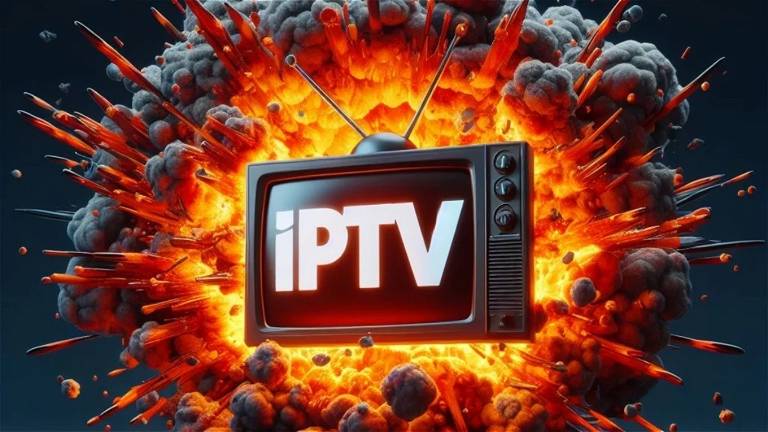Introduction – IPTV vs Traditional TV
In the ever-evolving landscape of tv, contenders stand at the forefront: IPTV vs Traditional TV. Each has its deserves and specific capabilities, shaping the manner we devour content. In this guide, we’ll delve into the warfare of screens, evaluating IPTV and Traditional TV to help you apprehend the key differences and advantages of each.

1. Delivery Method – IPTV vs Traditional TV
IPTV:
Description: IPTV delivers content over the net the usage of the Internet Protocol suite. It is predicated on a broadband internet connection to flow television content material at once on your device.
Advantages: Offers flexibility and accessibility as it could be accessed via diverse devices connected to the internet, along with smart TVs, streaming gadgets, computers, and cell gadgets.
Traditional TV:
Description: Traditional TV is based on broadcasting indicators through cable, satellite tv for pc, or antenna structures. The content material is delivered thru dedicated channels with a fixed programming agenda.
Advantages: Generally dependable in areas with excellent sign reception, and it doesn’t require an internet connection for fundamental channel get admission to.
2. Channel Selection
IPTV:
Description: IPTV frequently gives a broader selection of channels, along with worldwide alternatives, area of interest genres, and on-call for content material. Users can customize their channel line-up primarily based on choices.
Advantages: Offers a numerous variety of channels and content material, providing extra selections to match character tastes.
Traditional TV:
Description: Traditional TV programs come with predetermined channel lineups. Additional channels may additionally require separate subscriptions or upgrades to existing plans.
Advantages: Familiar channel shape with preset packages, simplifying the choice-making manner for customers.
3. Interactivity
IPTV:
Description: IPTV frequently carries interactive features inclusive of on-demand content material, video-on-call for (VOD), pay-in step with-view options, and interactive programming elements.
Advantages: Users can have interaction with content in actual-time, get admission to on-demand libraries, and take part in interactive features furnished by way of some channels.
Traditional TV:
Description: Traditional TV is greater linear, with restricted interactivity. Viewers observe a hard and fast time table, and on-demand options are generally constrained to precise channels.
Advantages: Offers a trustworthy and familiar viewing enjoy, suitable for people who decide on a conventional broadcast method.
4. Accessibility
IPTV:
Description: IPTV is obtainable across a lot of devices, including smart TVs, streaming devices, computer systems, and cellular devices. It permits multi-tool get admission to with synchronization alternatives.
Advantages: Provides flexibility and convenience, allowing users to look at content material on their favoured device.
Traditional TV:
Description: Traditional TV is usually accessed through committed set-pinnacle boxes, cable/satellite tv for pc receivers, or integrated TV tuners. It may additionally lack the equal degree of tool flexibility as IPTV.
Advantages: Offers simplicity with a devoted viewing device, but may be much less flexible in phrases of getting access to content across diverse gadgets.
5. Cost Structure
IPTV:
Description: IPTV subscription fees can vary primarily based on the issuer, package deal, and additional functions. Some IPTV offerings offer cost-powerful plans with a number customization options.
Advantages: Users can pick out subscription plans primarily based on their options, potentially leading to fee financial savings for people who do not need significant channel programs.
Traditional TV:
Description: Traditional TV frequently involves constant subscription costs with predefined channel programs. Additional channels or top rate content material may incur extra prices.
Advantages: Familiar pricing structure, but users may also pay for channels they don’t often watch.
6. Picture Quality
IPTV:
Description: IPTV can deliver fantastic video content, which include options for HD (High Definition) and even 4K streaming relying on the provider and person’s net speed.
Advantages: Offers a visually appealing and immersive viewing revel in with the capability for excessive-resolution content.
Traditional TV:
Description: Traditional TV best depends on the broadcast technique. Cable and satellite might also provide better-exceptional signals as compared to over-the-air broadcasts.
Advantages: Generally reliable photo fine, but the resolution can also vary primarily based at the consumer’s device and subscription plan.
Conclusion
The struggle of displays between IPTV and Traditional TV hinges on person preferences, priorities, and viewing habits. IPTV brings innovation, interactivity, and versatility, appealing to folks who are seeking for a personalized and modernized tv enjoy. Traditional TV, with its familiarity and reliability, stays a stable desire for folks who choose a more conventional method to channel browsing. The decision in the long run relies upon on what you fee most to your television viewing journey – the superior functions of IPTV or the tried-and-authentic simplicity of Traditional TV.


